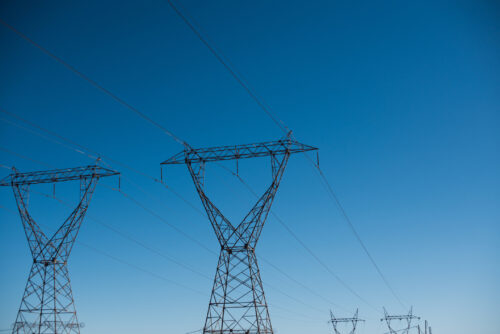
There’s No “One-Size-Fits-All” for Achieving Universal Energy Access in Africa
New report launched at COP28 highlights four ways to strengthen Africa’s grid to complement successful off-grid models.
In recent years, Africa has seen significant progress in electrification. Approximately 27 million people now have access to reliable energy through minigrids — more than any other continent. A whopping 45 million people gained access to electricity through solar home systems in 2022. All of this is inching toward achieving the UN Sustainable Development Goal 7 of ensuring access to affordable, reliable, and modern energy for all by 2030.
While minigrids and solar home systems are seeing record uptake on the continent, one critical piece of the electrification pie still lags — the grid. Several years of underinvestment in Africa’s grid have contributed to poor reliability and technical and commercial losses. It’s not just grids in Africa that have suffered from neglect. Globally, investment in grids has stagnated over the past decade. Achieving universal energy access in Africa will not be possible through a singular technology approach. There is therefore a need to embrace a combination of grid expansion and off-grid solutions.
A new report, Global Grids, Money & Models: Unblocking Investment and Unlocking Africa’s Renewable Energy Future, released at COP28 UN climate change conference by the Sustainable Markets Initiative's Energy Transition Task Force, developed together with Octopus Energy and RMI, highlights the profound potential that investments in electricity grid networks hold for Africa. It provides key considerations for governments, financiers, and grid developers on the continent, particularly as transmission projects grow more attractive for investment.
To reach universal access in Africa, $50 billion is needed annually in grids alone by 2030. Unlocking this scale of financing will mean that investment in grid expansion must shift beyond dependence on public capital and attract private financing.
Ije Ikoku Okeke, RMI managing director of Catalytic Climate Capital and the Global South, emphasized: “Fostering collaboration between the public and private sectors can help enable a just transition toward a cleaner, more prosperous future for Africa. The report highlights the critical role of the private sector in upgrading grid infrastructure, embracing decentralized solutions, and leveraging data and technology in accelerating scaled investment and empowering local communities.”
The report provides actionable recommendations under four key themes:
- Finance: Drive effective public-private partnerships to overcome barriers to private investment. As the scale of funding required to meet electrification targets increases, the private sector should collaborate more closely with the public sector, working with governments and multilateral development banks to deploy the capital needed.
- People: Put people at the center of grid development. The opportunity to unlock Africa’s grid potential is immense — it will improve lives and transform communities, achieving several of the UN sustainable development goals. Africa’s sustainable grid's future will mean universal energy access, well-paying clean energy jobs, economic prosperity for local communities, and more.
- Digitalization: Leverage digital advances to support grid infrastructure. Advances in digital technology have the potential to improve system reliability, improve customer experience, and reduce the cost of electricity.
- Market Catalysts: Create an enabling environment and deploy innovative technologies. You can’t plan for tomorrow’s grids using yesterday’s plan. African utilities need to reimagine grid development through the lens of innovation, from policies and market structures to emerging technologies.
Africa is at an inflection point for grid infrastructure. The launch of this report at COP28 represents a pivotal opportunity for advancing actionable strategies that have the potential to propel Africa toward a sustainable energy future. Now is the time for action so we can truly accelerate the shift toward a cleaner, cheaper, and more resilient energy system for all.
Download the full report here.
